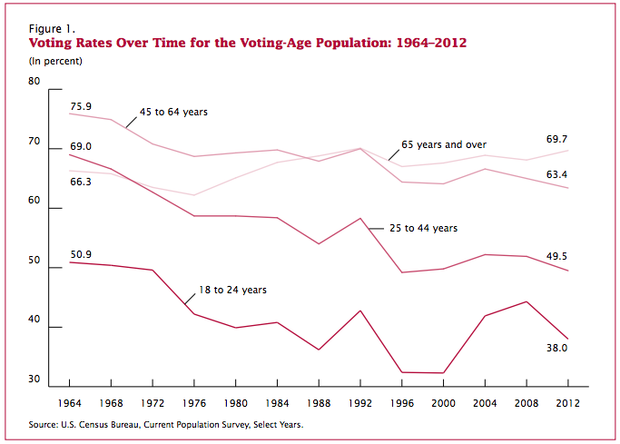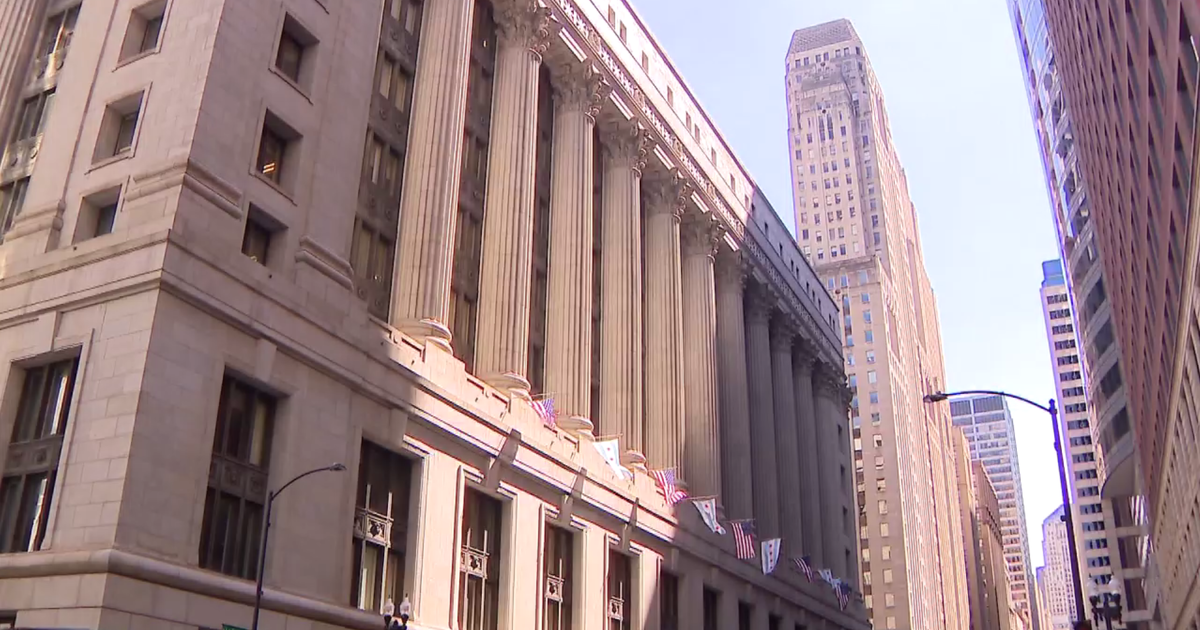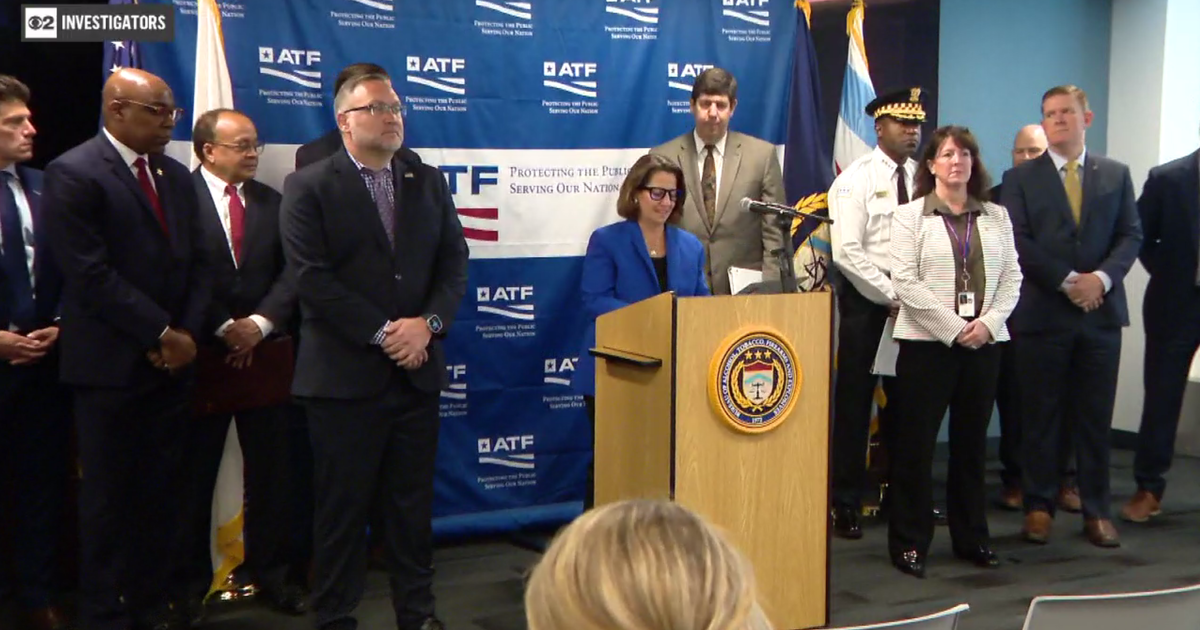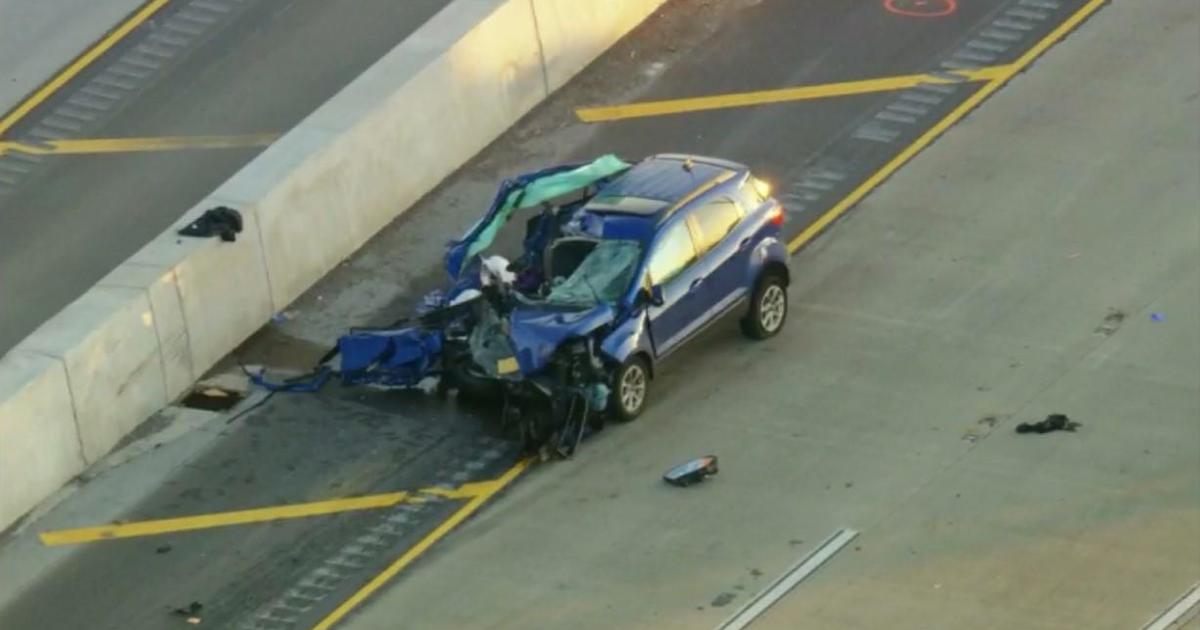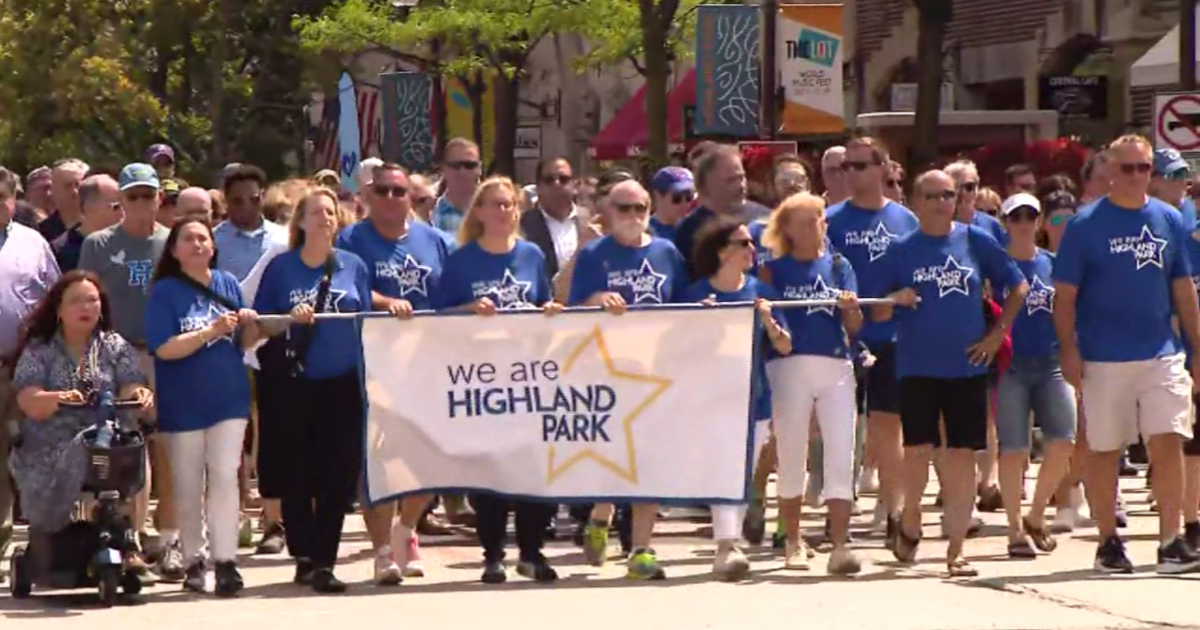Opinion: Young Millennials Don't Vote And It's Mostly Your Fault (Yes, You Specifically)
The views expressed on this page are those of the author, not CBS Local Chicago or our affiliated television and radio stations.
When 93 percent of 18- to 24-year-olds decided not to vote in Illinois' last Governor's race, I responded with a 500-word finger wagging. So wagged was my finger, my wrist is still sore.
Maybe I should have never wagged it to begin with?
While reading the RedEye opinion piece "I've never voted: Here's why" by Rianne Coale, in which Coale describes the factors that have led to her lack of voting, my knee-jerk reaction was to scream. By the end of the piece, I appreciated the author's willingness to put a personal answer to the mystery of those low voter turnouts. Even if I didn't like the answer, it gave slight context to what is otherwise a depressing statistic.
And then I got a glimpse of the blind hate she was getting via email and Twitter. Strangers on the Internet are mean, as it turns out. Instead of attempting to reasonably impart the importance of voting, some preferred to call her an idiot and tell her to move to North Korea.
These jerks got me thinking: maybe the wagging of the ol' finger at the kids for their rockin' and their rollin' and their not votin' doesn't help.
So what would help?
Ultimately, voter turnout for those darn 18- to 24-year-old rascals during presidential elections has been dismal forever. Sure, it was a whopping 50.9 percent in the politically-charged 1964 presidential race, a time when black Americans were being denied their right to vote and deaths in the Vietnam War were on the verge of dramatically rising... but that turnout was still far lower than all other age groups. Voting flatlined for 18- to 24-year-olds between 1996 and 2000 (wow, Gen X'ers, you've officially lost the right to criticize millennials for anything!), as you can see in the beautiful U.S. Census Bureau graph to the right (click it!), but rose back up after that. In 2012, turnout was 38 percent for 18- to 24-year-olds... and nearly 70 percent for those over 65.
Sure, 18- to 24-year-olds' youthful view of life -- the living in the moment with the Summertime Born To Die Sadness and what have you -- probably has a big impact on how they take their responsibility to vote. But I think the problem's too big -- and I respect 18- to 24-year-olds too much -- to simply assume the sole problem is that all young Americans are "childish." That would close off the possibility that maybe there are other reasons affecting their voter turnout.
When I look at how voting literally works in America, which is an inconsistent complicated mess, from the way we teach children how to vote, to the way counties literally handle elections, to the politicians that fight like babies, it's easy to see why so many of all ages don't respect the process of voting.
When the government doesn't appear to value the right to vote, is it any wonder its people also don't care?
So no, maybe the problem isn't young America's fault, maybe--
--Actually, before I finish this sentence, I should get on my high horse. Okay. One foot over the next. Aaaaand I'm on!
Maybe the problem isn't young America's fault, maybe it's everyone else's.
But just to be clear, 18-to 24-year-olds who don't vote, I'm still not on your side. If you don't mind, imagine me sitting backwards on a chair, legs awkwardly spread, as I rap with you about my feelings on your lack of voting. I think this kind of apathetic laziness is awful. Awful! I'm sure I could write a wonderful article viciously criticizing you, nitpicking every silly excuse you use to avoid voting, but what would that get me? Some cheap page views and nothing else (I'm looking at you, Chicagoist). It certainly wouldn't help solve the problem.
18-to 24-year-olds, freshly out of America's education system, are not responsible for their inconsistent and inadequate education. Personally, I learned about how our beautiful government works in the 8th grade and for one semester my senior year of high school. A year and a half of spotty education to understand the importance of government doesn't exactly scream "this is important" to me. Sure, I've voted in every election I could since I was 18, but I got lucky. I had an impassioned government teacher with decades of experience who was really, really good at getting 17-year-olds -- whose main concern was the bong in their van -- to care. This was also 2004, half of my class would be eligible to vote in an extremely divisive election that would cause voter turnout to rise for each age group, most significantly with 18- to 24-year-olds.
Not everyone's lucky enough to get an amazing, passionate, experienced teacher like Mr. Sullivan, which is not an indictment of teachers, but praise for one of the best human beings I've ever come across. Not everyone's lucky enough to go to my public school either, where the quality of education was worth more than the education at many other public schools across the state of Illinois (and likely the nation). As a study by The Education Trust points out, the Illinois school districts with the highest rates of impoverished students receive significantly less money than their more affluent counterparts by about 20 percent.
Even for those affluent or lucky enough to continue education after after high school, it's not like colleges are under the any obligation to teach their students how the American government works. Some do, some don't, continuing the tradition of inconsistent education from sea to shining sea.
We don't only leave young Americans hanging when it comes to educating them about our voting system, we also do a terrible job of teaching news media literacy in high school and college.
For those uncertain of how to choose a candidate, the polarizing landscape of both liberal and conservative news is far from welcoming. It's intimidating, the thought of picking and choosing what facts to trust, especially when you've never been required to learn the critical thinking it takes to disseminate the truth from the bull. In the precarious world the news media currently lives in (which is to say, at a time when the media sorta sucks), news literacy seems all the more important in education, yet it's sorely lacking.
Okay, yes, I can hear you screaming: "Plenty of middle and upperclass brats are well educated. What about them?!"
Well, person screaming at me, considering the disparity between low and high income voters, I'd wager that 18- to 24-year-olds who come from high-income families are more likely to vote than their low-income peers. But plenty of them still likely lack enough confidence in America's voting infrastructure to actually try and vote.
"But voting is easy!" you continue to scream.
Well, firstly, please stop screaming.
Secondly, explain to me what's so easy about America's broken voting machines. Outdated, they're increasingly difficult to repair with parts that are sometimes impossible to find.
According to a recent survey from public policy and law institute Brennan Center, "Jurisdictions in at least 31 states want to purchase new voting machines in the next five years. But officials in 22 of these states — 71 percent — said they did not know where they would find the money to pay for them."
What kind of message are we sending to young voters when we can't even figure out how to supply them with a reliable way to vote? Not an encouraging one.
And explain to me what's so easy about voter ID laws, which complicate the voting process in multiple states to prevent a crime that has become virtually non-existent in today's elections: voter fraud. Though solid research on the effects of voter ID laws has been hard to come by -- many of the laws are too new to get reliable results -- a recent study indicates that voter ID laws caused turnout to drop about 7.7 percentage points for democrats and 4.6 percentage points for republicans in states with strict ID laws between 2008 and 2012. Not surprisingly, turnout for minorities was affected most, with Latino and multiracial voters seeing the biggest drops in lieu of these laws.
It's bad enough that voting and registering to vote differs greatly from state to state, but adding convoluted laws to the already inconsistent process? That ain't too encouraging either, friend.
In America, voting is very important, yet not important enough to create a holiday to ensure more Americans can vote. Nor is it important enough to ensure registering to vote is easy and consistent across all 50 states.
So, I guess what I'm saying is, here in America, voting is sort of kind of important. That's the message we imply when we allow a broken system to fester. That's the message inferred by 18-year-olds.
"Here," we tell 18-year-olds. "Inherit this broken junk."
... And we're surprised when they don't want it?
Even if you don't agree with some of the progressive mumbo jumbo I spout, you gotta agree: the way Americans vote needs to be fixed.
By all means, when a young whippersnapper fails to put down their Nintendos and their PlaidStations long enough to vote, politely point out their wrongdoing. Teach them. Remind them of the issues facing them today, and of the past. Remind them of the soldiers who died for their right to vote. Remind them that women and African Americans had to literally fight for the right they are taking for granted. Remind them that some Americans continue to fight for their rights to vote to this very day, like many voters in the transgender community who face difficulties obtaining IDs and biased scrutiny at polling stations in multiple states.
But don't be a jerk.
We're the ones who created and maintain a broken, biased, gerrymandered and convoluted system.
If we want more young Americans to vote, we should probably fix it. Heck, if we ask nicely, maybe they'll even help.
Mason Johnson is a Web Content Producer for CBS Chicago. You can find him on Twitter.
